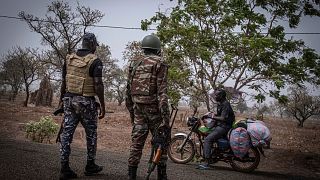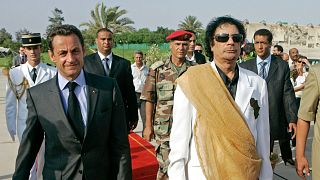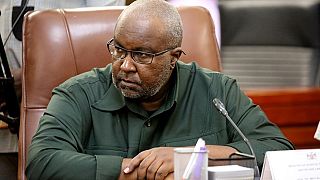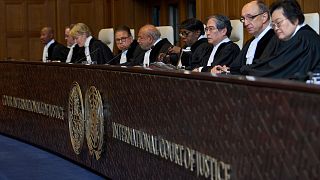Libya
The International Committee of the Red Cross expressed alarm on Thursday at the intensification of violence in Libya and the worsening situation of migrants in Tripoli, where “residential areas are gradually becoming battlegrounds”.
The organisation said in a statement that the humanitarian situation in and around Tripoli has seriously deteriorated in the past three weeks” with the launch of an offensive to seize the Libyan capital by Marshal Khalifa Haftar’s forces.
“The third war was yesterday. We were at the headquarters close to the clashes when the air force bombed a site close to the centre and the windows were broken. We were afraid of the voices and of the fighting. On Tuesday there was an armed group attacking us when we were praying and they beat us and our brothers and threatened us,”
Radwan, a Sudanese migrant said.
For his part, Abed al-Karim Abdullah, is another migrant said, “some group of army attacked us at the prison where we are. They attacked us and asked us to give them our phones and money. We refused that, and then they beat us with sticks. When we were praying, one person also was shot by a gun in the mosque – we were praying- and they said to stop praying. Libyan authorities and the UN said about 35,000 people have recently been displaced.
“Power outages are frequent in areas where clashes are taking place.
Basic services and infrastructure in Tripoli, such as hospitals and water supply stations, which have already suffered violence for eight years, are further weakened,” the ICRC said.
According to humanitarian worker, Fathi al-Far, “we have received more than 700 illegal immigrants coming from the areas of clashes in the Qasr bin Ghashir area. They were transferred in two stages through the UNHCR and each group of three hundred and fifty. “ At least 278 people were killed and 1,332 injured in more than three weeks of conflict, according to the latest World Health Organization (WHO) assessment.













01:00
Displacement crisis deepens: UN warns world at breaking point
02:35
Sudanese Refugee Children Find Hope in Libyan School
Go to video
Kinshasa reacts to Trump's claim that 'many' Congolese come to US
Go to video
France: seven-year sentence and fine suggested for Sarkozy over Libya financing deal
01:04
Sarkozy faces 10 Years in prison in Libyan campaign trial
01:00
Libya uncovers 50 migrant bodies in mass graves